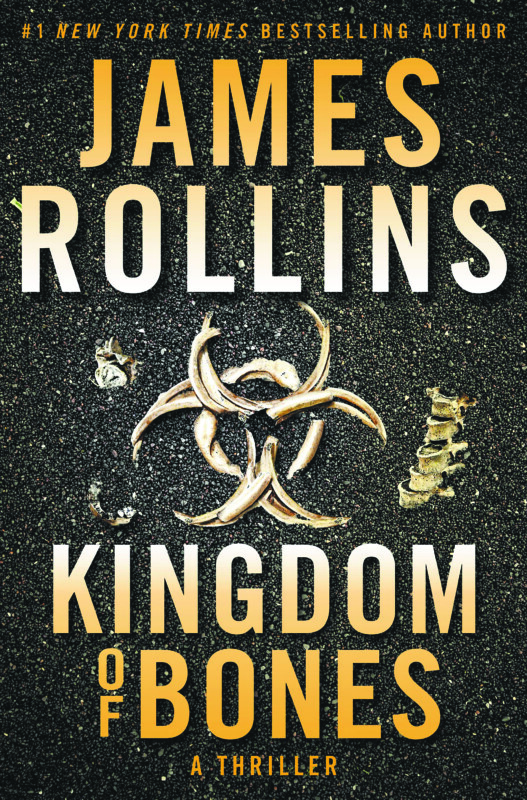Musical Revolutions: How the Sounds of the Western World Changed, by Stuart Isacoff (Deckle Edge, 320 pages)
In modern parlance, we’re most likely to use the word “revolution” to describe a political uprising. But in Musical Revolutions, pianist Stuart Isacoff uses it like Copernicus did when describing the movement of the planets. There is still “a disruptive shock of the new” in this sort of revolution, he says, but there is symmetry, growth and expansion.
Isacoff, the longtime editor of “Piano Today” and the author of three other books about music, explores the disruptive shocks of music history in his latest book, which will appeal most to readers with a comprehensive music education. He also offers a general audience an overlook of things they have probably not thought of before: how and why, for example, “do re mi fa so la ti do” became a thing long before The Sound of Music and how the first music notations emerged.
The book also provides a fascinating thread on how music has been used — one might say exploited — to harness emotions and manipulate listeners, and the reason that certain forms of music (including opera) have been denounced as demonic throughout their history.
Early Christian leaders, for example, realized that meditative chants, used broadly and uniformly, could be a way of unifying a far-flung church. But they had to be taught, which was no easy task without sheet music. Enter an Italian monk named Guido, a singing instructor who would develop a form of musical notation using a staff of four lines with color coding that showed the singer what to sing. Guido’s system is the basis of the music we read today, although the four lines became five and the colors were replaced with clefs.
The development of uniform notation, however, also led to increasing complexity in music, as singers began weaving disparate melodies in songs that were harmonious but complex. While archeologists have found instruments dating back to the most primitive cultures (in Germany, they found a rudimentary flute made from a vulture bone is thought to be 35,000 years old), early Christians struggled with music’s ability to both enhance and distract from morality. St. Augustine, for example, was beset by guilt when he allowed a soaring melody to distract him from sober contemplation. And the “busy textures” of the complex harmonies known as polyphony was denounced by Pope John XXII, who said in 1324 that these cutting-edge medieval composers were “ceaselessly intoxicating the ear without quieting it, and disturbing devotion instead of evoking it.”
Things got worse with the invention of opera in the late 1500s. The first opera has been lost to time, so the first surviving one, called Euridice, was commissioned for the wedding of King Henry IV of France. It was, Isacoff writes, “music for a select audience, more to be admired than felt,” but it became all the rage, and “New theaters became staging areas for the hedonists and rabble-rousers” of the time, with box seats becoming venues not only for the enjoyment of music, but for engaging in “notoriously indecent behavior.”
Isacoff turns his attention to Johann Sebastian Bach in a chapter called “Out of the Bachs,” in which he chronicles the rise of the Bach family as multigenerational “musical royalty.” Amusingly, Isacoff reveals that the composer who is a giant of Western music was all too human and once had a knife fight with another music student after calling him “a nanny goat bassoonist,” which is as good an insult as any that Shakespeare composed.
He moves on to French composer Claude Debussy and synthesizer developer Robert Moog, before taking on jazz, which arose in late 19th-century America with an appeal that was “instantaneous and widespread.”
“It moved feet all over the country,” Isacoff writes, before exploding in Europe in the 1920s, helping to enable the celebrity of Josephine Baker. But then came Prohibition, George Gershwin, Paul Whiteman and the advent of what was known as symphonic or orchestral jazz, and the swing era in the 1930s and ‘40s. Isacoff examines how the music and musicians (like Dizzy Gillespie and Miles Davis) intersect with political and social events of the day.
He concludes by reflecting on how music and musicians are often targeted during cultural revolutions, as in China in the 1960s when musicians “began burying their instruments, destroying music books, and melting down their vinyl records” as artists and intellectuals lived under threat of imprisonment and death. Much has changed since then; New York’s renowned Juilliard School now has a campus in China.
Musical Revolutions ends somewhat abruptly, with Isacoff declining to take on the most prevalent popular forms of music in America today, rock and its derivative, rap. He addresses this omission early on, saying his expertise is the Western canon of music, and “If rock is to be written about, it deserves a more knowledgeable observer than myself.”
Rock’s story, of course, is ongoing; incredibly, the Rolling Stones are touring this summer, led by a 78-year-old Mick Jagger. A much-heralded Elvis movie is about to come out. Rock’s history and impact is everywhere these days; for everything preceding it, Musical Revolutions is a fine, if selective, primer. B+
Book Notes
This is a hot take, but I’ve never understood the appeal of murder mysteries. There are too many murders in real life, and murder as entertainment, as in the start of the new Mary Kay Andrews novel, The Homewreckers, feels sort of icky. And last month came the news that a self-published Portland author who wrote a treatise called “How To Murder Your Husband” was convicted of … murdering her husband. Let’s hope there’s no cause for authorities to start a post-mortem investigation of Agatha Christie.
All that said, I’m in the minority here. The reading public loves murder mysteries. Here are some recent ones you might want to consider:
The Murder of Mr. Wickham by Claudia Gray (Vintage, 400 pages) takes a Jane Austen character and has him murdered in the midst of a house party at a country estate, leaving the guests to figure out who did it.
Sulari Gentill’s The Woman in the Library(Poisoned Pen Press, 288 pages) offs a patron at the Boston Public Library and the suspects are four strangers sitting quietly around a table in the reading room.
A Botanist’s Guide to Parties and Poisons (Crooked Lane Books, 304 pages) is by Kate Khavari and involves a university research assistant’s search for the killer of a professor’s wife who dropped dead of apparent poisoning at a dinner party.
Then there’s Last Call at the Nightingale (Minotaur, 320 pages) by Katharine Schellman, which deposits a body outside a nightclub in New York during Prohibition, embroiling a young fun-seeking seamstress in a dangerous underworld of crime.
And coming at the end of the month is Hatchet Island (also Minotaur, also 320 pages) by Paul Doiron, a double-murder mystery set on an island off Maine that is a sanctuary for endangered seabirds.
If you like the book and also like fishing, there’s an added benefit: You can go fly fishing with the author, who is a registered Maine fly fishing guide who lives on a trout stream. Also, if you’re wondering, you pronounce his name “Dwarren,” according to Doiron’s website.
Book Events
Author events
• ANDREA PAQUETTE Author presents Loveable: How Women Can Heal Their Sensitive Hearts and Live and Love as Their True Selves. Sat., June 18, 6 p.m. Toadstool Bookstore, Somerset Plaza, 375 Amherst St., Nashua. Visit toadbooks.com.
• PAUL DOIRON Author presents Hatchet Island. Gibson’s Bookstore, 45 S. Main St., Concord. Wed., June 29, 6:30 p.m. Visit gibsonsbookstore.com or call 224-0562.
• PAUL BROGAN Author presents A Sprinkling of Stardust Over the Outhouse. Gibson’s Bookstore, 45 S. Main St., Concord. Thurs., June 30, 6:30 p.m. Visit gibsonsbookstore.com or call 224-0562.
Poetry
• DOWN CELLAR POETRY SALON Poetry event series presented by the Poetry Society of New Hampshire. Monthly. First Sunday. Visit poetrysocietynh.wordpress.com.
Writers groups
• MERRIMACK VALLEY WRITERS’ GROUP All published and unpublished local writers who are interested in sharing their work with other writers and giving and receiving constructive feedback are invited to join. The group meets regularly Email pembrokenhtownlibrary@gmail.com.
Writer submissions
• UNDER THE MADNESS Magazine designed and managed by an editorial board of New Hampshire teens under the mentorship of New Hampshire State Poet Laureate Alexandria Peary. features creative writing by teens ages 13 to 19 from all over the world, including poetry and short fiction and creative nonfiction. Published monthly. Submissions must be written in or translated into English and must be previously unpublished. Visit underthemadnessmagazine.com for full submission guidelines.
Book Clubs
• BOOKERY Monthly. Third Thursday, 6 p.m. 844 Elm St., Manchester. Visit bookerymht.com/online-book-club or call 836-6600.
• GIBSON’S BOOKSTORE Online, via Zoom. Monthly. First Monday, 5:30 p.m. Bookstore based in Concord. Visit gibsonsbookstore.com/gibsons-book-club-2020-2021 or call 224-0562.
• TO SHARE BREWING CO. 720 Union St., Manchester. Monthly. Second Thursday, 6 p.m. RSVP required. Visit tosharebrewing.com or call 836-6947.






